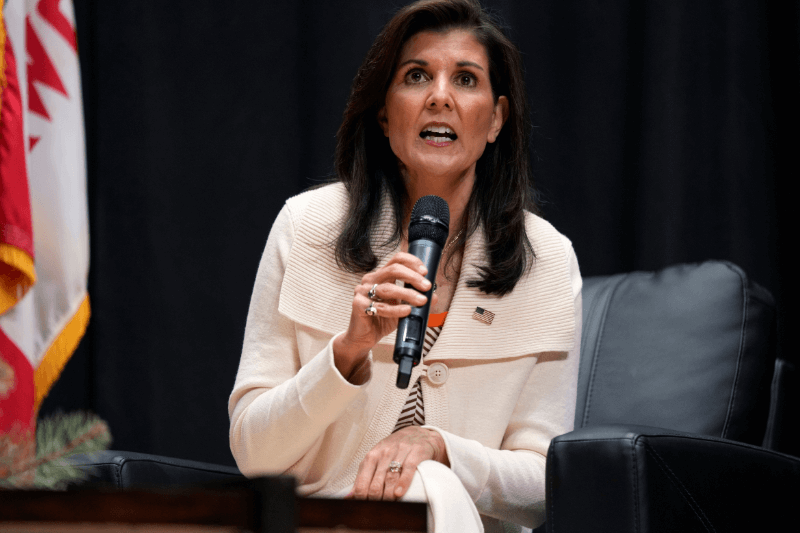
Nikki Haley’s Perspective on the Cause of the Civil War: A Delicate Balancing Act
Nikki Haley, the Republican presidential candidate, recently found herself at the center of a heated debate during a town hall in Berlin, New Hampshire. The controversy erupted when Haley, in response to a question about the cause of the Civil War, refrained from explicitly attributing slavery as its primary catalyst. Instead, she emphasized the role of government, sparking a flurry of reactions from both supporters and critics.
The incident took place against the backdrop of Haley’s increasing momentum in New Hampshire, where polls indicate her gaining ground on former President Donald Trump. Endorsed by Republican Governor Chris Sununu, Haley’s political journey is marked by a delicate balance—advocating for unity while facing scrutiny for her stance on historical narratives, particularly those surrounding the Confederate flag.
The town hall exchange began with a seemingly straightforward question: “What was the cause of the United States Civil War?” posed by an attendee identified as “Patrick.” Haley, a former U.S. ambassador to the United Nations, responded with a notable absence of any explicit mention of slavery. Instead, she steered the conversation toward the role of government, freedoms, and the limitations imposed on individuals.
Haley’s jesting response, “Well, don’t come with an easy question,” set the tone for a discourse that would unfold as a nuanced exploration of historical perspectives. The exchange with Patrick, who asserted he wasn’t running for president, demonstrated the immediacy of the debate and the significance of addressing historical accuracy in the public sphere.
Keep Reading
Attempting to clarify her position, Haley reiterated her belief in the government’s role in securing the rights and freedoms of the people. She argued that government should not dictate every aspect of individuals’ lives, underscoring her commitment to a limited government philosophy.
The former South Carolina governor often highlights her pivotal role in the removal of the Confederate flag from the State House grounds in 2015. This action, undertaken in the aftermath of the tragic mass shooting at Mother Emanuel AME church in Charleston, symbolized a significant step toward acknowledging and addressing racial tensions in the state.
However, Haley’s recent remarks introduce a layer of complexity to her perspective on the root causes of the Civil War. By sidestepping the mention of slavery, a key driver of the conflict, she opens herself to criticism while appealing to a narrative centered on the broader themes of governance, freedom, and individual rights.
The controversy surrounding Haley’s comments prompted a swift response from President Biden, who took to Twitter, asserting, “It was about slavery.” This succinct statement underscores the historical consensus that slavery was a central factor leading to the Civil War, emphasizing the contrast between Haley’s narrative and established historical understanding.
The delicate balancing act performed by Haley in navigating the intricacies of historical interpretation speaks to her broader strategy. As a presidential candidate, she aims to present herself as a unifying force capable of fostering understanding on sensitive issues. Her emphasis on the role of government aligns with a conservative philosophy, but the omission of slavery from her initial response has sparked a robust debate about the nuances of historical narratives.
In conclusion, Nikki Haley’s recent town hall exchange sheds light on the challenges politicians face when addressing historical events laden with deep-seated emotions. The incident underscores the ongoing struggle over the narrative of America’s past and the complexities of unifying a nation with divergent views on its own history. As the controversy unfolds, Haley’s candidacy becomes emblematic of the broader debates surrounding historical accuracy, political correctness, and the quest for national unity.




